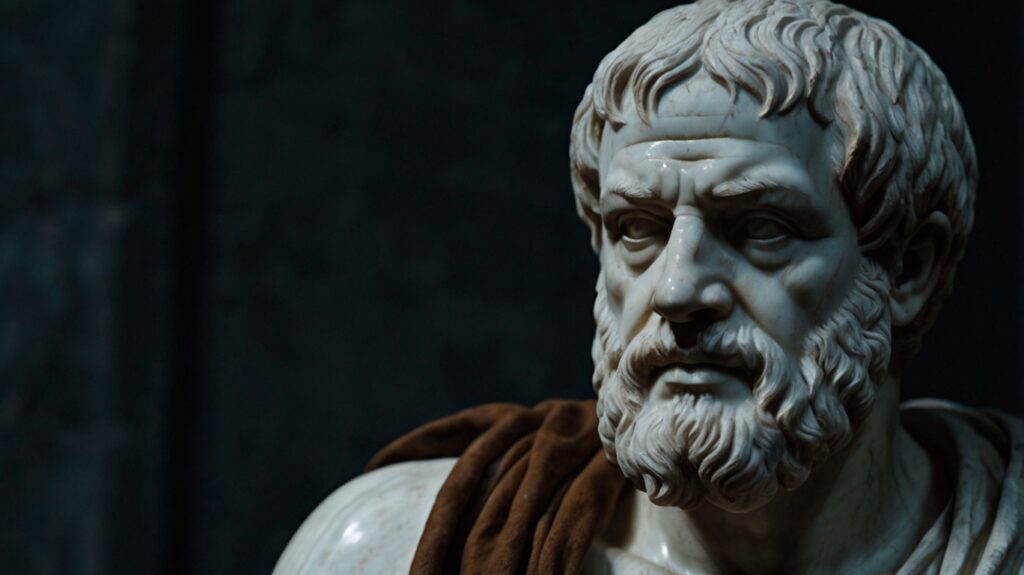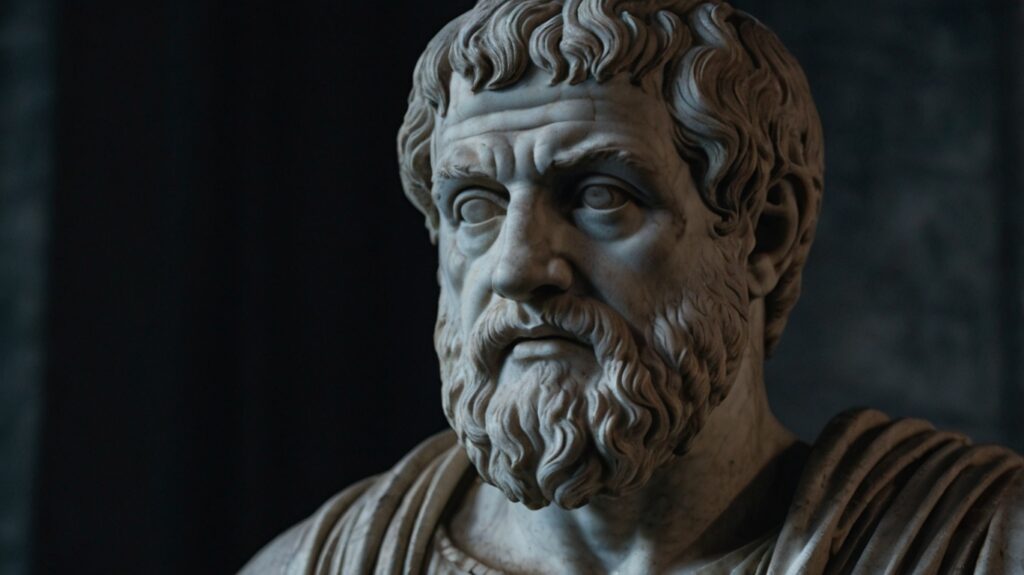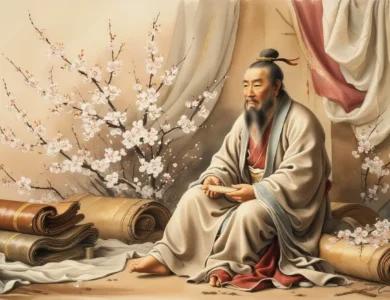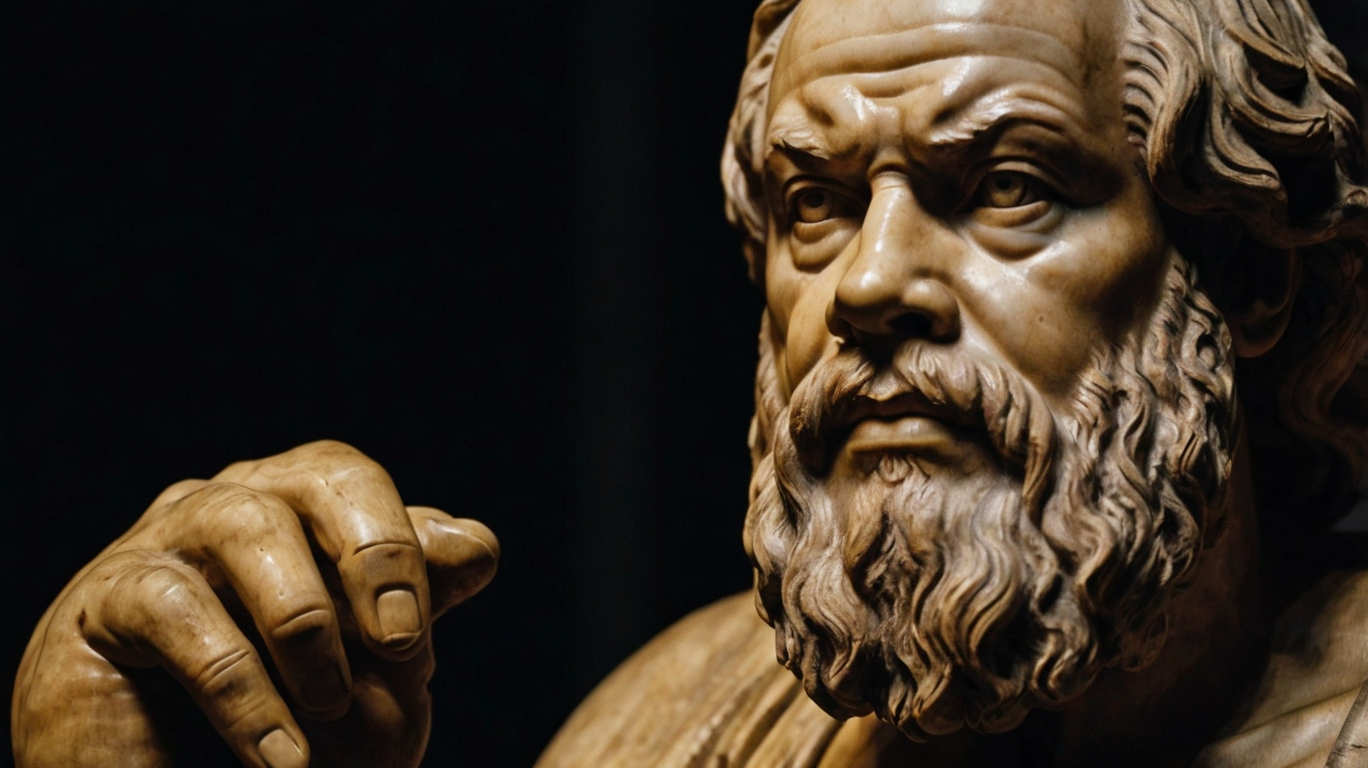Aristotle (384-322 BCE) – Biography, Top 20 Best Quotes
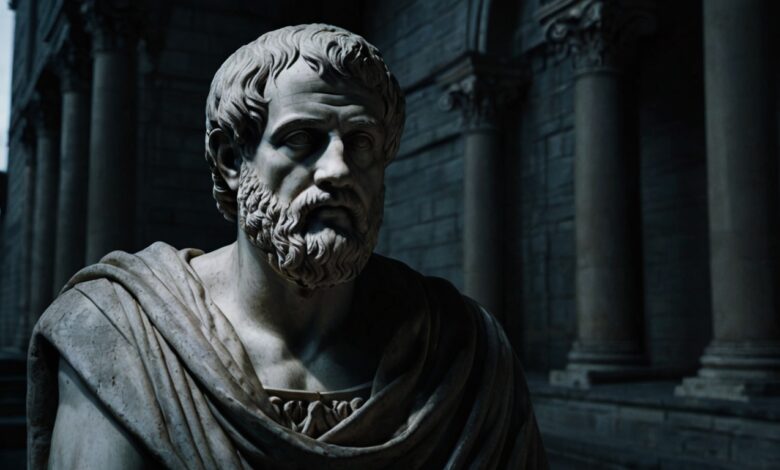
Aristotle (384-322 BCE) was a prolific Greek philosopher and mathematician whose work laid the foundation for much of Western philosophy and science. Born in Stagira, he studied under Plato in Athens, before founding his school, the Lyceum.
Aristotle’s interests spanned such diverse areas as metaphysics, ethics, politics, biology, and logic. His approach to research and his emphasis on systematic observation and classification had a profound influence on the development of the scientific method.
Aristotle’s teachings on the “golden rule”, the nature of reality, and the importance of virtue have had a lasting influence on ancient and modern thought.
Biography and Early Life
Aristotle was born in 384 BCE in Stagira, a small town on the northern coast of Greece. His father Nicomachus served as personal physician to the Macedonian King Amyntas, giving Aristotle his first association with the Macedonian court.
This relationship would later become crucial in his career. Aristotle’s parents died when he was young, and he was later raised by Proxenus, who was in charge of Atarneus.
Education and Influence
At the age of 17, Aristotle moved to Athens to join the Academy of Plato, where he spent 20 years as a student and then as a teacher. During this period he was heavily influenced by Platonic teachings, although he ultimately received more distinct philosophical ideas from his mentor Aristotle while at the Academy which were crucial to his ideas on metaphysics, morality, and natural philosophy.
Teaching and Lyceum
After Plato’s death, Aristotle left Athens and spent time traveling and studying in Asia Minor and Lesbos. During this time he conducted research in biology and natural sciences.
In 343, King Philip II of Macedonia invited Aristotle to teach his son Alexander the Great. Aristotle’s teachings would later influence Alexander’s rule and conquest.
In 335 Aristotle returned to Athens and founded his school, the Lyceum. The Lyceum was an institution of empirical research and philosophical discourse. Aristotle’s lectures covered a wide range of topics, including logic, metaphysics, ethics, politics, rhetoric, and the natural sciences.
Philosophical Contributions
Aristotle’s contributions to philosophy and technology are significant and sundry. He is frequently seen as the daddy of Western philosophy. His works include “Nicomachean Ethics,” “Politics,” “Metaphysics,” “Poetics,” and “On the Soul.”
The Aristotelian method was characterized by empirical observation and systematic classification, which laid the foundation for the scientific method. He believed in the concept of the “golden mean” in which quality lay between the two extremes.
Later Life and Legacy
Following the death of Alexander the Great in 323 BCE, anti-Macedonian sentiment grew in Athens, leading Aristotle to flee to Chalcis on the island of Euboea. He lived there until he died in 322 BCE.
Aristotle’s influence persisted long after his death, profoundly shaping medieval scholarship through the works of Islamic and Christian philosophers and continuing to impact modern science and philosophy.
Top 20 Quotes of Aristotle
“Knowing yourself is the beginning of all wisdom.” Aristotle (384-322 BCE)
“The whole is greater than the sum of its parts.” Aristotle (384-322 BCE)
“It is the mark of an educated mind to be able to entertain a thought without accepting it.” Aristotle (384-322 BCE)
“What is a friend? A single soul dwelling in two bodies.” Aristotle (384-322 BCE)
“Art aims to represent not the outward appearance of things, but their inward significance.” Aristotle (384-322 BCE)
“Patience is bitter, but its fruit is sweet.” Aristotle (384-322 BCE)
“Happiness depends upon ourselves.” Aristotle (384-322 BCE)
“The more you know, the more you realize you don’t know.” Aristotle (384-322 BCE)
“The energy of the mind is the essence of life.” Aristotle (384-322 BCE)
“Wishing to be friends is quick work, but friendship is a slow-ripening fruit.” Aristotle (384-322 BCE)
“Pleasure in the job puts perfection in the work.” Aristotle (384-322 BCE)
“We are what we repeatedly do. Excellence, then, is not an act, but a habit.” Aristotle (384-322 BCE)
“In all things of nature, there is something of the marvelous.” Aristotle (384-322 BCE)
“He who has overcome his fears will truly be free.” Aristotle (384-322 BCE)
“Quality is not an act, it is a habit.” Aristotle (384-322 BCE)
“To avoid criticism say nothing, do nothing, be nothing.” Aristotle (384-322 BCE)
“The roots of education are bitter, but the fruit is sweet.” Aristotle (384-322 BCE)
“The best way to avoid envy is to deserve the success you get.” Aristotle (384-322 BCE)
“Man is by nature a political animal.” Aristotle (384-322 BCE)
“To perceive is to suffer.” Aristotle (384-322 BCE)

